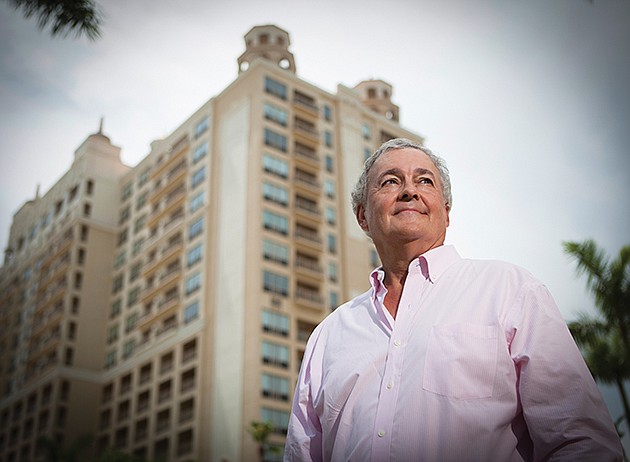- November 24, 2024
-
-
Loading

Loading

The tourism industry could be the industry with the most dramatic shifts in the past 20 years.
“One of the biggest changes is the vibrancy of downtown Sarasota and Venice,” says Virginia Haley, president of Visit Sarasota County. “Hotels downtown,” such as the Ritz-Carlton, Sarasota, “helped drive that significant change.”
Developer Kevin Daves started campaigning for a Ritz-Carlton downtown in the mid-1990s. “Nobody in town could understand why we were doing downtown” instead of the beach, Daves says. He opened the hotel — to the backdrop of many doubters — in 2001.
“That property told the world that there's some significance to (downtown Sarasota) ... and led to audiences of sophisticated, high quality visitors,” Haley says.
The overall number of hotels in Sarasota since then has probably only increased 10% or so, according to Daves, but the properties have shifted away from locations like Longboat Key, where a number of hotels have been converted to condos.
Haley says that from Anna Maria south to Naples, the industry is starting to see more of a shift from condo rentals to hotel development. Though that shift may be somewhat set off by the rise of Airbnb, it is spurring additional visitors and visitor spending.
Tourism in Collier County has also undergone a major shift — especially because it didn't have a formal tourism promotion agency until 15 years ago. There was some promotion from the individual hotels, but it was almost 100% a leisure destination, according to Jack Wert, executive director of the Naples, Marco Island and Everglades Convention and Visitor's Bureau. “We had a high season (mid-December to the Easter holiday) and then virtually no season,” he says.
Around 2003, the county started to concentrate on promoting the offseason, and now tourism provides year-round employment opportunities, Wert says.
Today, the county gets more traffic from groups, with 30% of visitors coming for group meetings and 5% to 7% coming for organized youth sporting events, Wert says. The growth is expected to continue, with the J.W. Marriott on Marco Island's $320 million renovation, including completely new meeting space, Wert says.
In Tampa, an influx of visitors was spurred by big events over the past five years, according to Santiago Corrada, president and CEO of Visit Tampa Bay. Events like the Republican National Convention, the International Indian Films Academy Awards, the college football National Championship, women's basketball Final Four, and the hockey Frozen Four have allowed the city to attract thousands of new visitors.
The city is competing against other big cities for these and big conventions, such as Charlotte, N.C., Austin, Nashville, Fort Lauderdale and Orlando. Corrada credits the success of winning these events to the city's venues, the new downtown Riverwalk, the private funding that is raised in addition to public support and the idea that multiple groups are working together to spur this kind of economic development.
For the College Football National Championship in early January, the city had somewhere between 65,000 to 100,000 visitors for three to four days. “Those people need to be taken care of,” he says.
Another notable difference in Tampa has been the shift to boutique hotels, such as The Epicurean, Le Meredien and the Aloft, which all opened around 2014, Corrada says. And he doesn't expect the trend to slow. “There are a number of others slated for construction primarily in the airport area,” he says.
As the audience changes generations, the marketing techniques and strategies also have to change to appeal to the new audience, Corrada says. The new traveler is more focused on the experience.
“Before we were marketing the sunshine, palm trees and water,” he says, “Now it's craft beer, culinary experiences, girls getaway weekends and romantic getaways.”
In Sarasota, Haley says advertising spending has made a major shift in the past 20 years, from newspaper inserts, tour books and an infomercial to now spending $250,000 on Google. There's been a huge transformation to social media and consumer-rating sites like Yelp and TripAdvisor, Haley says.
There's also been a change in what interests visitors — people seem to want to be more active — renting bikes, jogging, hiking, kayaking and canoeing, both Haley and Wert say.
Even with progress, sometimes old school is OK, too. “One thing that hasn't changed, even with the explosion of the culinary scene,” Haley says, “is there is always a long line at the Amish restaurants.”
— Traci McMillan Beach
20/20 vision
Fueled by massive population growth, key Florida industries have gone through massive transformations in the past two decades